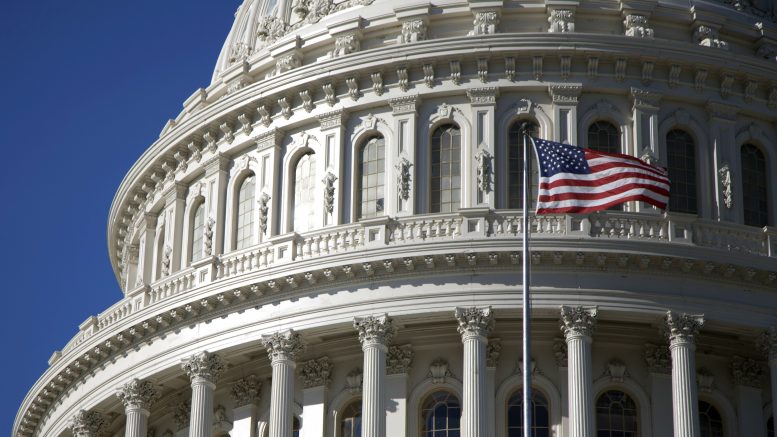On Feb. 14, 2017, U.S. President Donald Trump signed into law a joint resolution of Congress to repeal a critical anti-corruption rule for oil, gas and mining companies. The law was introduced by the House on Jan. 30, 2017. It quickly moved to the Senate, where it was passed with the support of the Republicans and opposition of the Democrats.
The rule is referred to as the “Cardin-Lugar regulations” and was enacted by the U.S. Securities and Exchange Commission (SEC) in accordance with the Cardin-Lugar amendment of 2010. The amendment — prompted by the 2008 financial crisis and high prevalence of corruption in developing countries — directed the SEC to issue a rule requiring oil, gas and mining companies listed on a U.S. stock exchange to disclose how much they paid to hosting foreign governments, above a certain threshold. The purpose of this amendment was to curb bribery and otherwise illicit payments made to governments in return for specific natural resource extraction projects.
The rule itself took a decade to finalize, and, up until the U.S. government’s recent decision to overturn it, was set to take effect next year. As the rule stood, it would require U.S.-listed mining companies to file an annual report with the SEC outlining the type and total amount of payments made to foreign governments and the U.S. federal government with respect to extractive projects.
With the decision to repeal the SEC’s rule, there is therefore no indication that U.S.-listed companies will be subject to a reporting regime in the near future. That is, until the SEC creates a new rule.
While the Cardin-Lugar regulations have been overturned, the Cardin-Lugar amendment has not. This means that U.S.-listed companies will likely still be subject to reporting requirements at some point, as the Cardin-Lugar amendment requires the SEC to issue disclosure rules on extractive companies.
However it is yet to be determined when these rules will be enacted. Given the length of time associated with enacting the original rules, it is unlikely that a new reporting regime will be established any time soon.
In the meantime, U.S.-listed companies will be required to continue to track their payments, pursuant to the U.S. Foreign Corrupt Practices Act, however, they will not be required to make this information public.
It is unlikely that other countries who have adopted legislation consistent with the Cardin-Lugar regulations will follow the U.S. government’s new direction in this field.
The regulations have received widespread support from the world’s major extractive companies, and many companies have a reporting regime. It has led to the creation of a global standard of transparency in the extractive industry, with numerous jurisdictions including Canada, the U.K. and the European Union, enacting similar legislation to help combat corruption and increase accountability in corporate governance.
Canada continues to be one of the countries supporting transparency requirements in the extractive industry. The Extractive Sector Transparency Measures Act, for example, came into force in June 2015 and contains broad reporting obligations for oil, gas and mining companies. The reporting obligations go even further than the Cardin-Lugar provision, to include not only entities on Canadian stock exchanges, but also certain private companies.
A concern for Canadian and foreign companies who will maintain their reporting regimes is whether the repeal of the Cardin-Lugar regulations will place U.S.-listed companies operating in mining extraction areas at an advantage compared to companies subject to rigorous transparency requirements — particularly for projects in developing countries such as in Africa, where there is a problem with corruption and where succumbing to bribery could lead to the award of mining rights and subsequent contracts.
While the Cardin-Lugar regulations would not have ended corruption, they were expected to put pressure on those giving bribes and those receiving them, as they would be aware that they would have to report any payments made to government. With the repeal, there is the possibility that U.S.-listed companies could feel more inclined to engage with corrupt governments and be under less pressure to decline a bribe, which could put them ahead of competitors from Canada, the U.K., the E.U. and elsewhere.
Whether or not this will in fact cause such a shift in the thinking and conduct of U.S.-listed companies during their dealings with foreign governments is, of course, undetermined. However, there remains a concern for mining companies subject to these types of reporting regulations, when operating and competing against American companies in these areas.
Mining companies listed on both U.S. and foreign exchanges will still be subject to transparency requirements. While the U.S. may not have reporting requirements, U.S.-listed companies operating in Canada, the U.K. and the E.U. will still be required to comply with applicable transparency legislation.
Therefore, if a company has reason to believe and is concerned that an American competitor is committing bribery or corruption, it should consider further investigation. The suspect company may be subject to other transparency requirements and anti-corruption legislation.
Although the repeal of the Cardin-Lugar regulations signals that Canadian, U.K. and E.U. companies will have tougher reporting guidelines compared to their U.S. neighbours, the playing field may have just become more complex, rather than uneven.
 — Based in Ottawa, Peter N. Mantas is a partner at the law firm Fasken Martineau. He is head of Fasken’s Ottawa litigation group, co-leader of the firm’s White Collar Defence and Investigations group and a member of the firm’s Litigation Steering Committee. He is also the immediate past co-chair of the Class Actions Section of the Ontario Bar Association. Mantas is an editor of Fasken’s white collar defense blog whitecollarpost.com, where this article first appeared.
— Based in Ottawa, Peter N. Mantas is a partner at the law firm Fasken Martineau. He is head of Fasken’s Ottawa litigation group, co-leader of the firm’s White Collar Defence and Investigations group and a member of the firm’s Litigation Steering Committee. He is also the immediate past co-chair of the Class Actions Section of the Ontario Bar Association. Mantas is an editor of Fasken’s white collar defense blog whitecollarpost.com, where this article first appeared.
 Anastasia Reklitis is an associate in the Litigation Group in Fasken Martineau’s Ottawa Office. She is experienced in large, document intensive litigation matters, especially cases involving records in electronic form.
Anastasia Reklitis is an associate in the Litigation Group in Fasken Martineau’s Ottawa Office. She is experienced in large, document intensive litigation matters, especially cases involving records in electronic form.
Fasken Martineau is a leading international business law and litigation firm, with eight offices with more than 700 lawyers across Canada and in the U.K. and South Africa. Please visit www.fasken.com for more information.





Be the first to comment on "Commentary: Anti-corruption rules watered down for US miners"